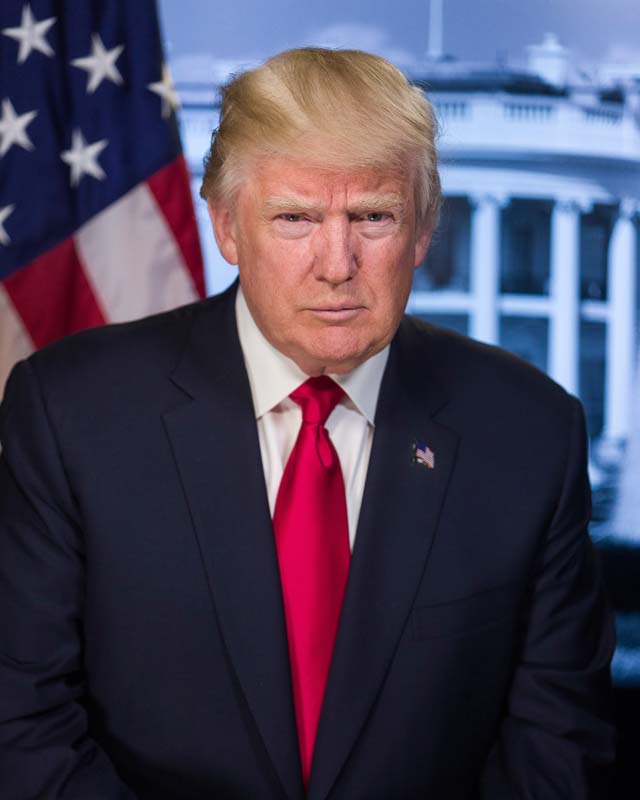
403
Sorry!!
Error! We're sorry, but the page you were looking for doesn't exist.
Trump embraces unique style of diplomacy
(MENAFN) During his first term, U.S. President Donald Trump embraced a unique style of diplomacy, notably cultivating relationships with adversaries like Russia and North Korea while exerting pressure on China and Iran. However, with the recent developments, Trump faces a different kind of challenge: a more unified coalition of U.S. adversaries, formed after Russia’s invasion of Ukraine in 2022. Upon taking office on Monday, Trump pledged to end Russia's war in Ukraine, curb Iran's nuclear ambitions, confront China, and strengthen the U.S. military. But in recent years, Russian President Vladimir Putin and Chinese President Xi Jinping have developed a strong partnership, with China offering Russia significant economic support amid the ongoing conflict in Ukraine.
Following Trump's inauguration, Putin and Xi held a lengthy phone call, proposing further deepening of their strategic partnership. Additionally, Russia signed key agreements with both North Korea in June 2024 and Iran in early 2025. Analysts have warned that the alliance of these four countries—Russia, China, North Korea, and Iran—could undermine the influence of the U.S. and its allies. Daniel Russell, a former Obama-era East Asian policy head, stated that Russia’s partnership with China limits Moscow's willingness to engage with Washington and weakens China's vulnerability to U.S. pressure.
China has helped Russia evade severe Western sanctions by purchasing Russian oil and supplying dual-use goods to aid Russia’s defense industry. Meanwhile, North Korea has provided troops and weapons to Russia in Ukraine, while rapidly advancing its missile and nuclear programs. Experts also fear that Iran may resume its pursuit of nuclear weapons despite setbacks from Israeli attacks on its regional proxies. Members of the new administration are acknowledging the growing complexity of the situation. National Security Adviser Mike Waltz highlighted how China's oil purchases from Iran indirectly support Russia's military actions in Ukraine. Foreign Minister Marco Rubio, during his Senate confirmation, labeled China as the most significant threat to the U.S., while accusing Russia, Iran, and North Korea of creating chaos and instability worldwide.
Following Trump's inauguration, Putin and Xi held a lengthy phone call, proposing further deepening of their strategic partnership. Additionally, Russia signed key agreements with both North Korea in June 2024 and Iran in early 2025. Analysts have warned that the alliance of these four countries—Russia, China, North Korea, and Iran—could undermine the influence of the U.S. and its allies. Daniel Russell, a former Obama-era East Asian policy head, stated that Russia’s partnership with China limits Moscow's willingness to engage with Washington and weakens China's vulnerability to U.S. pressure.
China has helped Russia evade severe Western sanctions by purchasing Russian oil and supplying dual-use goods to aid Russia’s defense industry. Meanwhile, North Korea has provided troops and weapons to Russia in Ukraine, while rapidly advancing its missile and nuclear programs. Experts also fear that Iran may resume its pursuit of nuclear weapons despite setbacks from Israeli attacks on its regional proxies. Members of the new administration are acknowledging the growing complexity of the situation. National Security Adviser Mike Waltz highlighted how China's oil purchases from Iran indirectly support Russia's military actions in Ukraine. Foreign Minister Marco Rubio, during his Senate confirmation, labeled China as the most significant threat to the U.S., while accusing Russia, Iran, and North Korea of creating chaos and instability worldwide.

Legal Disclaimer:
MENAFN provides the
information “as is” without warranty of any kind. We do not accept
any responsibility or liability for the accuracy, content, images,
videos, licenses, completeness, legality, or reliability of the information
contained in this article. If you have any complaints or copyright
issues related to this article, kindly contact the provider above.


















Comments
No comment